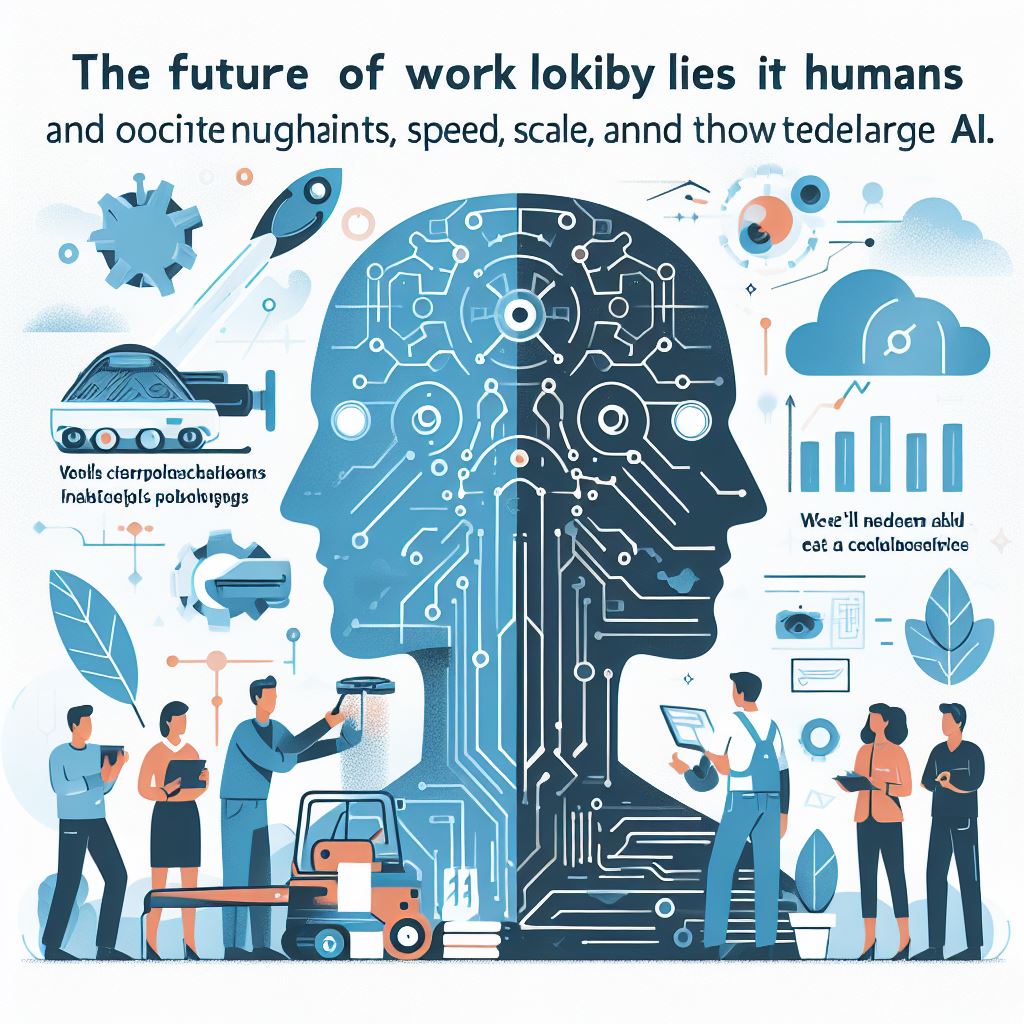Will robots and AI take your job?

Artificial intelligence (AI) is fueling remarkable advancements in technology. AI algorithms can converse like humans, create art, and even perform complex medical diagnoses. Amidst this excitement, there's a growing fear: is AI poised to cause widespread job displacement? Let's take a closer look.
The Potential for Automation
It's no secret that AI has the power to automate tasks.Consider these examples:
- Manufacturing: Robots on assembly lines, performing repetitive tasks with unmatched precision.
- Customer Service: AI-powered chatbots answer questions and handle basic requests 24/7.
- Data Analysis: AI algorithms sift through mountains of data, finding patterns humans might easily miss.
This potential for automation has led to worries that many jobs could simply disappear, replaced by tireless machines.
Jobs at Risk vs. Jobs Created
The reality is more nuanced. Yes, certain jobs are certainly at risk of automation:
- Routine, repetitive tasks: Jobs relying on predictable procedures are readily automated.
- Middle-skill jobs: Tasks like data entry or some accounting fall in this 'gray' area where AI is improving significantly.
However, AI also creates new jobs:
- AI development: Software engineers, data scientists, and machine learning experts are in high demand.
- AI ethics and regulation: New job roles will emerge to address the social and ethical implications of AI.
- Jobs leveraging AI: Roles that understand AI and use it to enhance productivity will increase.
The Skills Gap and Need for Adaptation
The biggest challenge isn't just job losses, but rather a misalignment of skills. AI will demand different skillsets from the workforce. The emphasis will shift to critical thinking, adaptability, problem-solving, and creativity – skills that machines currently lack.
To bridge this gap, we must invest in:
- Lifelong learning: Education can’t be a one-time thing. Workers need upskilling opportunities throughout their careers.
- Focus on "Human skills": Schools and industries must partner to foster human-centric skills alongside technical capabilities.
It's Not About Humans vs. Machines
The future of work likely lies in collaboration between humans and AI. Humans will provide oversight, ethical guidance, and creative problem-solving while AI will handle tasks involving speed, scale, and data analysis. We'll need workers who understand this collaboration and how to leverage AI effectively.
Live Updates
- Creating a box with links that appear to come from the bottom and move up can add
- Creating a box with links that appear to come from the bottom and move up can add
- Creating a box with links that appear to come from the bottom and move up can add
- Creating a box with links that appear to come from the bottom and move up can add
- Creating a box with links that appear to come from the bottom and move up can add
- Creating a box with links that appear to come from the bottom and move up can add
- Creating a box with links that appear to come from the bottom and move up can add
- Creating a box with links that appear to come from the bottom and move up can add
- Creating a box with links that appear to come from the bottom and move up can add
- Creating a box with links that appear to come from the bottom and move up can add
- Creating a box with links that appear to come from the bottom and move up can add
- Creating a box with links that appear to come from the bottom and move up can add
- Creating a box with links that appear to come from the bottom and move up can add
- Creating a box with links that appear to come from the bottom and move up can add
- Creating a box with links that appear to come from the bottom and move up can add
- Creating a box with links that appear to come from the bottom and move up can add
- Creating a box with links that appear to come from the bottom and move up can add
- Creating a box with links that appear to come from the bottom and move up can add
- Creating a box with links that appear to come from the bottom and move up can add
- Creating a box with links that appear to come from the bottom and move up can add
- Creating a box with links that appear to come from the bottom and move up can add
- Creating a box with links that appear to come from the bottom and move up can add
- Creating a box with links that appear to come from the bottom and move up can add
- Creating a box with links that appear to come from the bottom and move up can add
- Creating a box with links that appear to come from the bottom and move up can add
- Creating a box with links that appear to come from the bottom and move up can add
- Creating a box with links that appear to come from the bottom and move up can add
- Creating a box with links that appear to come from the bottom and move up can add
- Creating a box with links that appear to come from the bottom and move up can add
- Creating a box with links that appear to come from the bottom and move up can add
- Creating a box with links that appear to come from the bottom and move up can add
- Creating a box with links that appear to come from the bottom and move up can add
- Creating a box with links that appear to come from the bottom and move up can add